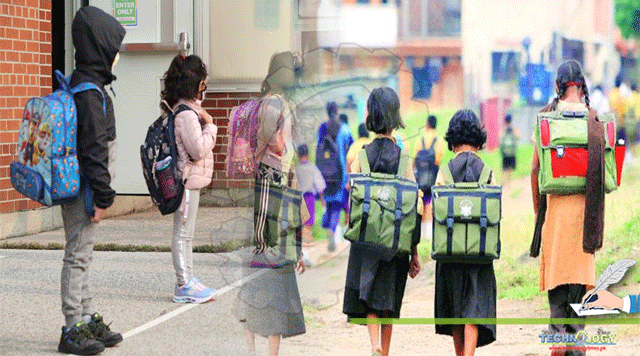The educational system all over the world has gone through a devastating effect for the outbreak of the pandemic. And this has stirred up concerns that whether students can reclaim their old days very soon.

The whole idea of education has changed in these two years. We have seen educational institutions, schools, and colleges are getting shifted from physical (or offline) to online courses. One can learn almost anything online. To let you know of the pattern, one can easily Learn languages online.
However, the broad effects on students due to the shift from offline to online forms of education can not be denied, especially in the poorer sections of society. The governments of all the countries are investing billions in this field of online education.
Regarding this matter, Conor Lennon (UN News) was in conversation with Robert Jenkins (Director of Education and Adolescent Development, UNICEF) on 24th January, International Day of Education. Let us see what Robert Jenkins had to say.
UN News Was in Conversation With Director of Education and Adolescent Development of UNICEF, Robert Jenkins
Robert Jenkins: The complete and partial school closures all around the world is a matter of concern. More than 650 million students are affected by this long-term closure of educational institutions and we are on no grounds to deny the importance of school reopenings.
We are deeply concerned, as we see the number is increasing, and the consequences on marginalized children.
We have observed that almost 53% of children in third-world countries could not find their way to schools for being economically deprived. They could not receive the basic standards of numeracy and literacy. After the pandemic, it’s gone up to 70%.
This means that 70% of children can’t read or understand an easy textbook. And school closures are for a longer period in poorer countries compared to the developed ones.
To add up to the problems, remote learning is almost impossible for marginalized students. Because they might live in an area where remote learning is not offered. Along with that, it is very obvious that they do not have access to any gadgets that help in remote learning, such as television, mobile phones, radios, etc. For many students, affording any sort of internet connection is unthinkable.
UN News: What do you recommend to teachers and parents who are concerned that children are less likely to be vaccinated than adults, schools can be the breeding grounds of the virus?
Robert Jenkins: The effect that school closures have on children is inconceivable. Along with study or learning loss, the impacts add up to their health, physical, psychological, and nutritional losses as well. They are deprived of the one-time mid-day meal that they used to have in schools.
There is evidence to prove the fact that physical schooling has not been the breeding ground for the coronavirus. And if proper Covid-19 precautions and measures are taken for school reopenings, then the spread of the virus also decreases.
Important measures such as mask-wearing, proper sanitization, social distancing, ventilation, physical separation have to be maintained for school re-openings.
The information that schooling is safe for children should reach parents as well.
UN News: Many educational experts concluded that the present system of education can make learning all over the world better. Do you agree?
Robert Jenkins: We have observed that the present system of education is becoming fruitful to many children all over the world. But it is somewhat limited to first world countries only.
The economically backwards countries are not receiving the same opportunity as them. Therefore, we see a matter of discrimination in the new educational system. Therefore, schools reopening are very important in these countries.
UN News: What will be your message to the education and health ministers of these countries?
Robert Jenkins: I think that they immediately prioritize re-opening of schools and other educational institutions, provided that all the health precautions are maintained properly.
Wrap Up
The pandemic has struck hard in the educational system of the whole world. In this era of online education, we’re having electric gadgets such as mobiles or computers are a must, many students are falling behind day by day. Attaining an ideal education for students is slowly becoming a matter of privilege. For this matter, the known organizations of human welfare are thinking of school and college re-openings as soon as possible, provided that it is done in such a way that it does not spike up the spread of the virus. Robert Jenkins shared his piece of advice to the health and education ministers, especially of the economically restrained countries, to immediately focus on the reopening of schools and other educational institutions. We are hopeful to see students returning to their classrooms once again.